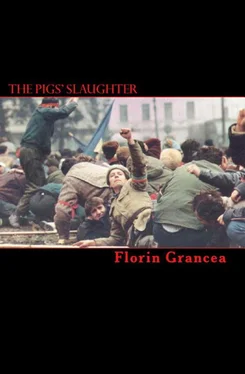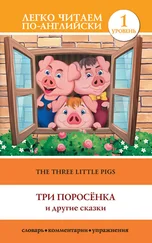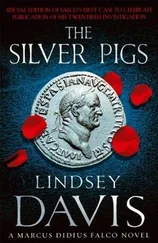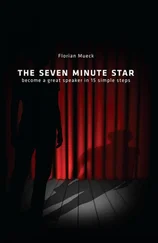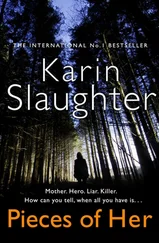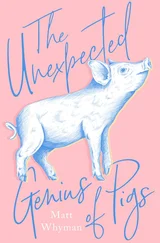It was a nice spring day but he didn’t feel so good and went home. He said to my mom that he would lie down for an hour or so, but when she checked on him he was unresponsive. Dr. Rogojan, the same old doctor that we asked to come in the middle of the night and paid a 100 lei came, and he simply announced, “Coma!”. Did nothing to my father, took his pay, doubled many times by the skyrocketing inflation of those years and called the ambulance. After he called it he went on his way, and my sister called me.
I cannot say whether I was lucky or unlucky. I was living in Bucharest then, studying Journalism at the University and experiencing first love in the arms of Cosmina, a girl that wanted to be a babe, from my high school in Sibiu. I had no phone, no mobile phone, no pager. So my sister called Ms. Jenny, a 60 year old widow living next door, and she came and knocked on my door and I was there.
“Come immediately, father is unconscious, we’re waiting for the ambulance to take him to Sibiu”, she said, and I started to run and I went into the subway without paying. I had no money to spare. I was only hoping the train prices hadn’t changed since the week before when I visited my family and didn’t say “I love you!” to my father, as I have should have.
But I was quite lucky that day to get the afternoon train.
There were only three trains every day for Sibiu, one in the morning, another in the afternoon and the last one, a night train so I was lucky to get it. It was crowded. Those days people still used trains to travel and I stood in the corridor and when I cried I opened the window to let the wind dry my tears.
“Please God, not him!” I was saying all the time, but over and over I was remembering how, the previous night, while studying in the National Library, suddenly some poetry had entered my head and I wrote it down, reading it after without understanding it’s meaning.
“I sniff, I sniff in the air
The smell of death and despair
I sniff the Occidental wind
And shout‚ I know death is wind
And sliced myself in two big halves
One for Hell and one for Gods
I sniff, I sniff in the air
The smell of death and despair”!
But I couldn’t sense what was waiting for me in Avrig. Uncle Lulu was at the train station with his car, waiting. That was a first. Nobody ever waited for me at the train station, not even when I went as a child, every day, by myself to Sibiu with a broken arm, for rehabilitation.
So I expected my father was already dead, but Uncle Lulu said that he wasn’t. So I started to hope, only to reach home and see all my relatives there, all the aunties and uncles and cousins, all sweeping the front yard, cleaning the house, preparing it for the funeral.
They were either lying to me or they weren’t giving my dad a single chance.
Only a long time after that day did I understand the drama of my father’s death. He was executed after being judged and sentenced by people who were more ruthless than those that killed Ceauşescu.
The Ambulance came a half an hour after Dr. Rogojan called. They looked at my father and waited for my mother to tip them generously. But we were poor. We had no money. The money that we had went to paying my studies and my one bedroom apartment in Bucharest. So, when they saw that there was nothing to take, they took my father with them. My mom wanted to ride in the ambulance, too, but they said it wasn’t allowed. We’ll take him to the City Central Hospital”, they had said and, through the closing door, they gave my mom my father’s wedding ring.
“Lady, you wanna keep that. If he dies and is put in the morgue before you get there, they’ll steal it!”, they said and closed the door in the disorientated face of my mom. So what happened was that she panicked but had the strength to dial 23850, the phone number of my Uncle Ion, and she spoke with my cousin Ioan and asked him to go to the City Central coz my father was almost dead in an Ambulance with some heartless people beside him.
And she dressed in less than 3 minutes and still crying went out with the intention of hijacking a car, because we had no car, the train was hours away and a connecting bus with Sibiu was available only in the morning, once.
My cousin first finished his meal and then walked to the hospital. The ambulance had already returned from Avrig, he learned, and the man inside was on a bed in the hospital waiting for medical help.
But he couldn’t enter the hospital, those were the rules, so he went and bought some flowers and some chocolates and gave them to a nurse and he smiled, and she smiled back and let him through. And he took the stairs because only the special elevator carrying people to and from the operating room was working, and only an hour and a half, after receiving that phone call from my mom did cousin Ioan finally get to see dad.
“The moment I entered the room, blood started to flow from your father’s nose” he told me during the funeral, and I thanked him for being there. That piece of information was all that we needed to know. It meant that my father didn’t die alone, like an animal, but died like all human beings should, with someone watching over them, telling them, “It’s OK, you are not alone, you have a loving family beside you”.
My mom got there but it was too late. And it was our own fault that we were poor and had no money to tip the people working in the Ambulance. We were too poor so that was why we were judged and then sentenced and then executed by our motherfucking country, this time Iliescu’s country. Romania couldn’t provide for us all. There were industries to be dismantled and sold for the benefit of the chosen few. The teachers and doctors and all other public servants were paid only meager wages. My father was a public servant but when he died he had no decent shoes. That was why we buried him in mine. About 3000 people attended his funeral. He was young and he was popular. I was walking behind the horse led funeral carriage, and that funeral carriage was made of glass, and what I saw reflected in that unlikely mirror was the huge cortege of people walking behind me, my sister and my mom. There were enough of us for another Revolution, I thought, because 1989 was the last time so many people walked together through my town. The only difference was that my father wasn’t at the front but the back and he wasn’t being carried but walking with them. In 1989, on 25th of December, we never imagined that that was the freedom we were getting when we listened to the news on the TV that Ceauşescu had been executed. It was Christmas Day and people were cheering like it was New Year’s, or like Romania had just won the Soccer World Cup. We were quite happy and satisfied too.
“I’m so sorry grandfather didn’t live to see this moment”, my dad said, referring to his own father. “He just hated the fact that he shared his birthday with Ceauşescu, January 26th”, he said, and he was repeating himself. The truth is that my grandfather had also said those words so many times during his final weeks that we started to fear political prosecutions for the entire family.
“Free Romanian Television”, the new name of our one and only TV station, of course changed in the months following the Revolution to “Romanian Television”, because it wasn’t free, announced that we would see the trial and the execution. At that time other TV stations around the globe were already airing that macabre show. Some people in Romanian Television were already thinking of making money for themselves.
So we were just waiting around when dinner time came and my father said we should not eat in the kitchen but set the dining table in the middle of our room again, which we did. We took the fine tablecloth, which took my grandmother 3 months to make, and lit candles, and prepared everything like it was an anniversary. Fine crystal glasses replaced the usual ones, and my sister was allowed to take out our finest tableware and silverware. Even the wine I got from the basement I put it in a crystal carafe. It was all so exciting.
Читать дальше
